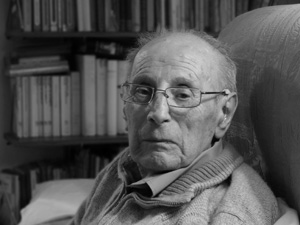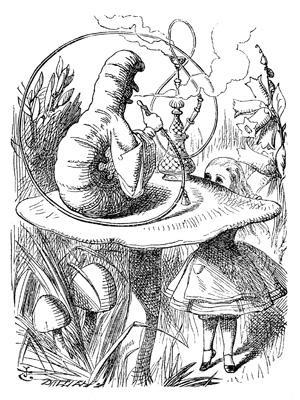
Your complimentary articles
You’ve read one of your four complimentary articles for this month.
You can read four articles free per month. To have complete access to the thousands of philosophy articles on this site, please
Interview
D.D. Raphael
The moral and political philosopher D.D. (David Daiches) Raphael died just before Christmas – a month short of his 100th birthday. Shortly before his death, he spoke to Gideon Calder about what more than eighty years in philosophy involves.
What led you to study philosophy?
I remember reading a book in the early 1930s – now what was the book? Perhaps it was Ethics by G.E. Moore – and thinking, “Well, if that’s philosophy, I think I can do it!”
One striking thing about your work is your consistent interest in British philosophers.
Well, it just so happened that I knew French reasonably well, but not so well as to be able to do philosophical work in French. I remember while going to lectures at Oxford that Henry Price, who was the Professor of Logic, suggested that I should read [18th century Welsh moral philosopher] Richard Price. And while reading it, I again thought “If that’s philosophy, I think I can do it!”
And your DPhil thesis was partly on Price.
The thing is, I went to Oxford, to University College, because another boy from my school had done that, and had done very well. I went as a classical scholar. It was a four-year course, with Classical Moderations for the first five terms and then Literae Humaniores (‘Greats’) after another seven. Then Henry Price suggested that I should edit an edition of Richard Price’s book A Review of the Principal Questions in Morals (1758). I think he was interested partly because they had the same surname! And he knew that Price needed to be edited.

Photo of D.D. Raphael © Anthony Sheppard 2016
You must have spent more than eighty years in and around universities. After completing your DPhil in 1940, you went to New Zealand as your first full academic post, to teach at the University of Otago.
Yes, that was after working in the Ministry of Labour during the war. I liked New Zealand and enjoyed the times there. But I regretted the move in some ways as my wife wasn’t happy, and her father was ill. I was originally supposed to go for five years but we decided to come back after three years. In consequence I had to pay for the fare, which otherwise would have been covered by the institution.
So you had to buy yourself out of the post, as it were. And on returning to the UK, you took up a post at the University of Glasgow?
Yes. I had known Professor Maclagan there, because when I was a graduate student at Oriel College [Oxford], Maclagan was the regular philosophy teacher there. I got to know him well, and thought a great deal of him, as I still do.
And you were then in the same department in which Adam Smith had been Professor of Moral Philosophy.
Yes, though that’s not why I took the post!
You were in Glasgow for over twenty years .
Yes, ten years as lecturer, then senior lecturer, with Maclagan as Professor of Moral Philosophy. Then I was appointed Professor of Political Philosophy.
Then you moved to Reading University.
Yes, though that was a mistake; I should have stayed in Glasgow. After that I went to Imperial College [in London].
Which is primarily associated with the sciences, as an institution. So how come they sought a political philosopher?
They wanted somebody to deal with the non-scientific subjects – with the humanities – teaching them to science students. So I put in for it, and was very glad when I was appointed. I was very happy there.
What was it that you enjoyed about it?
Well, the students were very clever – pretty well all the students at Imperial College are clever. And they were interested in philosophy, as being quite different from their scientific curricula. So the students who came were keen. Eventually I was made an honorary Fellow there. I have a soft spot for the place.
Do you think the academic world changed a great deal around you? Was it a different world to be in by the time you retired?
I wouldn’t say that it had changed, no.
I’ve a particular interest in Adam Smith as a philosopher – though most people of course know him primarily as an economist. Could you say a little bit about your reasons for devoting attention to his work?
Well, it having been suggested to me that I should edit Smith’s Theory of Moral Sentiments (1759), I came to appreciate him for that. I know he was not a greatphilosopher, but I found him attractive.
Do you think he ranks alongside figures such as David Hume?
Not as a philosopher – Hume was a much greater philosopher. But they were friends, of course. I was interested in the Scottish Enlightenment in general, and I came to have a respect and an affection for Smith, and for Hume.
What is it that makes the Scottish Enlightenment quite distinct from its German and French counterparts, would you say?
The fact that it’s close to common sense, I suppose. This also made it intelligible. I didn’t care for philosophy that was difficult to understand. I was attracted to Scottish philosophy because of its clarity.
When you read somebody like Kant, regardless of your native tongue, you have to take on a different lexicon, and a kind of system. Reading Hume or Reid, you don’t have to do that in the same kind of way. It’s not that their work is any less sophisticated or subtle. It’s just that it’s written in a different mode. Many people will know you primarily for Problems of Political Philosophy, which first came out in 1970. Did you feel that it was influential on how people understood what political philosophy is?
I think so in a small way, yes.
Your more recent book Concepts of Justice (2003) introduces a series of thinkers and the ways in which they approach the idea of justice. Most political philosophy courses these days have a heavy emphasis on John Rawls and his A Theory of Justice, but in your book, he features just as the subject of one chapter, no longer than that on anyone else. Do you think it would be helpful if political philosophers didn’t dwell so much on Rawls?
Oh, I don’t know. I think he’s interesting and stimulating, so I’m quite happy that it should be so.
What really stands out in your approach is your heavy stress on the priority of clarifying concepts. Do you think there are limitations to that? How far does it take us?
I think it takes us a long way on its own. It’s illuminating and enlightening. One understands things better.
Should we bring the analysis of concepts closer to the real world of politics, that is, to our understanding of the ways in which power actually works?
Well I suppose that the pure, conceptual side is just what interested me, and I found I could get students to be equally interested. But I don’t think it’s the only way to do it. I’ve no objection to working backwards from challenges that confront us in the real world. It just wasn’t what appealed to me.

The caterpillar gets philosophical in Alice in Wonderland
Do you miss teaching?
Yes. If you see that you’re making a difference, that’s very pleasing. Some of my students have gone on to do good things. Mostly teaching philosophy!
Are there colleagues over the years to whom you feel especially indebted?
I owed a great deal to my brother-in-law, [literary historian and critic] David Daiches. I admired what he had done – he had made a difference to his subject area. And I was very fond of him.
Have there been contemporary philosophers who have particularly influenced you?
[English moral philosopher Harold Arthur] Prichard influenced me a lot.
I’m interested in what you think your biggest achievements have been. Of what are you proudest?
Oh dear! I don’t think I’ve achieved anything much! I think the fact that I’ve made a difference to students – that’s pleasing.
Do you have a favourite book?
Now I did think about this. Alice in Wonderland.
A fine favourite to have! Though I was thinking of your own work – whether there’s a book which you would most like to be held up as an example of what you have done.
I don’t think so, no. [Later DDR recalled that Moral Judgement is a favourite.]
Are you proud of all your work?
I wouldn’t say ‘proud’. I’m glad to have done it. Knowing that it’s well used by people – I’m pleased to have done that.
• Gideon Calder took his PhD at Cardiff University and is now Professor of Social Ethics at the University of South Wales.









